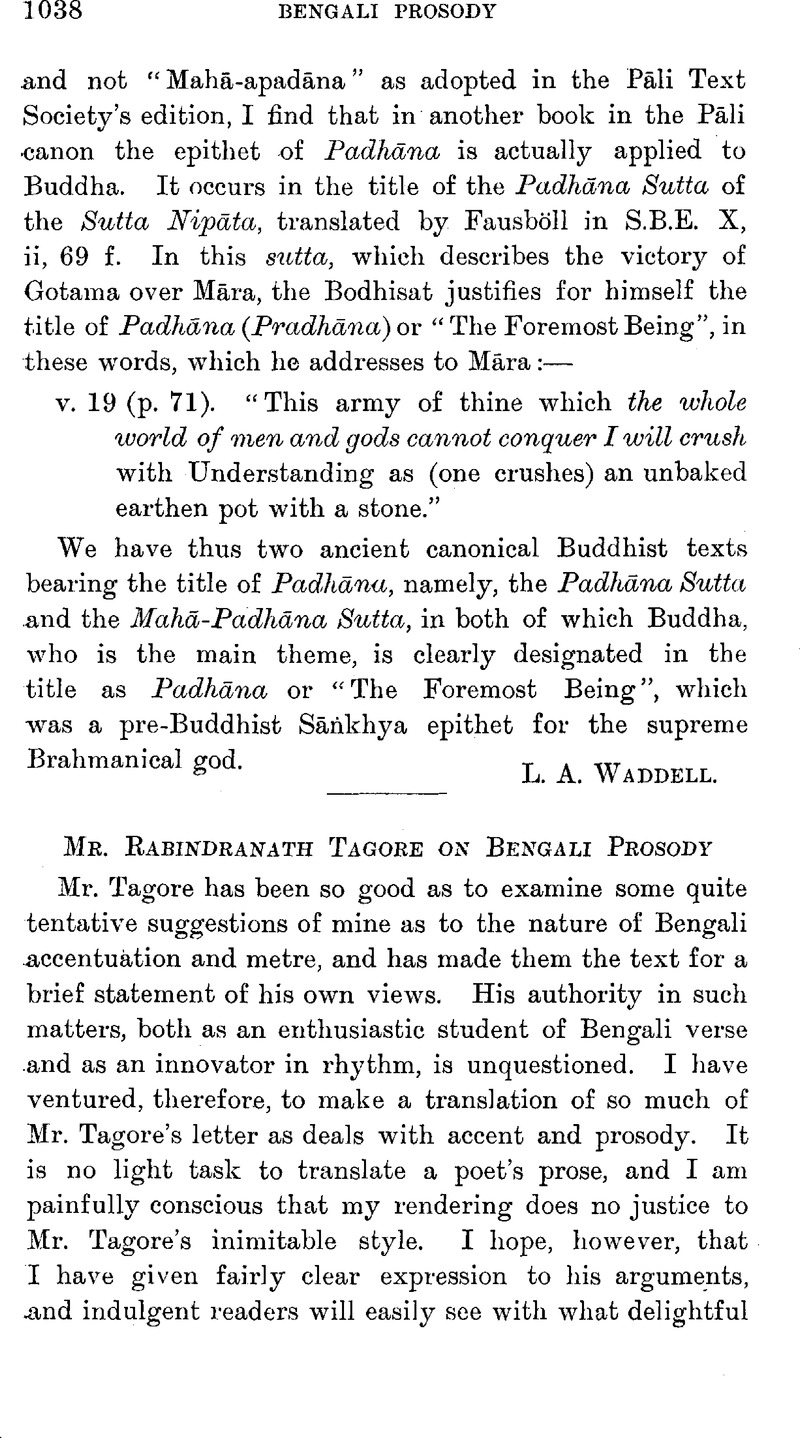No CrossRef data available.
Article contents
Mr. Rabindranath Tagore on Bengali Prosody
Published online by Cambridge University Press: 15 March 2011
Abstract

- Type
- Miscellaneous Communications
- Information
- Copyright
- Copyright © The Royal Asiatic Society 1914
References
page 1042 note 1 [Translator's note.—Pronounced puṇṇa-vān.]
page 1045 note 1 Roughly translated, the distich means, “all my thorns will assume a new grace and blossom as flowers. All my griefs will take on a ruddy blush and bloom as roses.” It happens that, leaving out the extra-metrical āmār, the lines are typical payār verses of 8 + 5 or 6 syllables, but written in the elliptic colloquial, which leaves out many a's and i's, and so produces contact of consonants (see my note ad fin. ).




